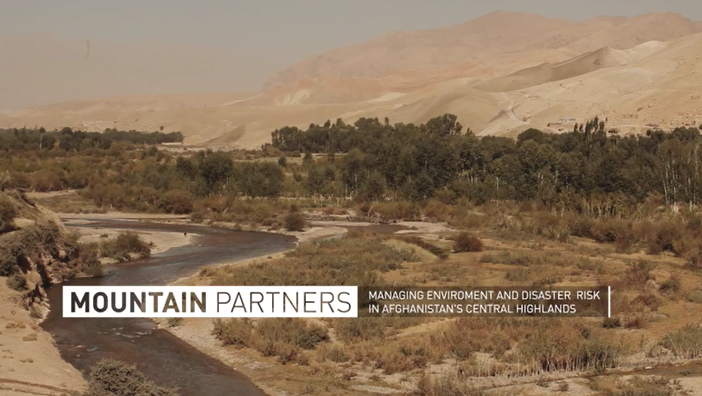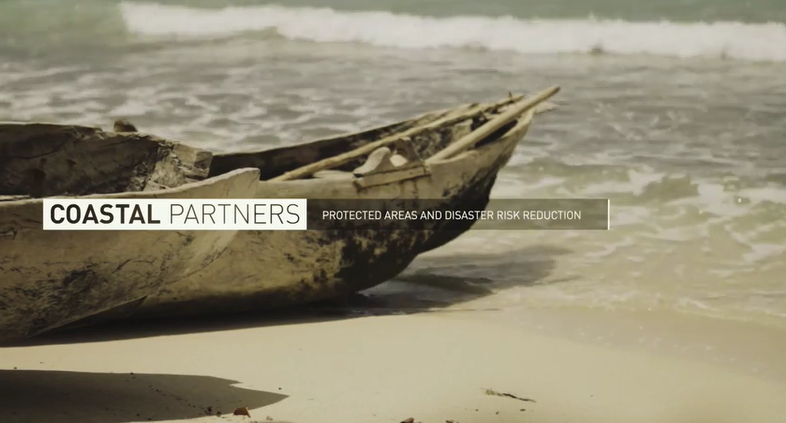ECO-DRR: Ending the Vulnerability of the Poor to Natural Disasters
Discussion details

Photo: Video screenshot of the EU-financed, UNEP-led, ECO-DRR demonstration project in Afghanistan
The poorest people in the poorest countries are the most vulnerable to disasters. This is because they lack the capacity for prevention and resources for resiliency. This is true for sudden natural disasters like storm-driven floods, landslides and winds, and it is no less the case for natural disasters that unfold over time like climate change, drought, deforestation and soil degradation. In poverty-stricken areas, when natural disasters don’t take lives, they end livelihoods.
A partnership between the European Union and the UN Environment Programme (UNEP) addresses the disproportionate impacts of natural disasters on the poor. It does so by supporting policies that bolster environmental protection in a way that aids disaster prevention and preparedness, along with sustainable development. The partnership looks to break the cycle of poverty, environmental degradation and disaster-risk. It operates on following the axiom known as Ecosystem-based Approaches to Disaster Risk Reduction or Eco-DRR.
While the degradation of forests, wetlands, coasts, and drylands is a major driver of disaster risk and vulnerability, on the flipside, improved ecosystem management can lessen the impacts of disasters on vulnerable communities.
The EU-financed, UNEP-led collaboration has implemented ECO-DRR demonstration projects in Afghanistan, Haiti, Democratic Republic of the Congo, and Sudan. The interventions have yielded important outcomes lending both to the protection of the natural resources on which the poor often depend as well as the improvement of natural buffers to disaster. The projects are cost-effective, impactful, and replicable.
- In Afghanistan, eco-DRR is now included in climate change adaptation and resilience projects under the newly established Afghanistan Resilience Consortium.
- In the Democratic Republic of the Congo, eco-DRR was incorporated into the Action Plan of the Lukaya River Basin Users Association for the period 2016-2021, and there is donor interest in supporting related agroforestry action.
- In Haiti, eco-DRR is integrated into the country’s nascent protected area management framework and UNEP helped to facilitate IDB funding of US$4 million to the Ministry of Tourism.
- In Sudan, disaster resilience was incorporated into the establishment of the Water Forum in the State of North Darfur.
While the demonstration projects were local, the partnership’s impacts are global.
- A national Eco-DRR course on reaches 300 participants, mostly from government ministries;
- Approximately 50 universities worldwide deliver a post graduate course on Eco-DRR;
- 300 faculty members from 200 academic and teaching institutions have been trained; and
- Massive Open Online Courses attracts 17,000+ participants from 183 countries.
ECO-DRR offers a way to build sustainable livelihoods while at the same time dampening the impacts of natural disasters on those furthest behind. To build on the successful first phase of this project, UNEP received additional funding from the European Commission to scale up and mainstream Eco-DRR approaches in its focus countries. The agency has also mobilized additional funding from the Government of Norway to support regional activities related to Eco-DRR including partnership building.
Find a Factsheet about Eco-DRR projects here.
Watch a selection of short videos about these projects by clicking on the images below:




Log in with your EU Login account to post or comment on the platform.